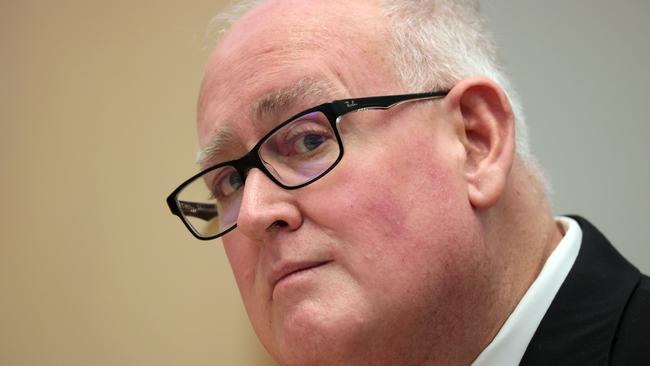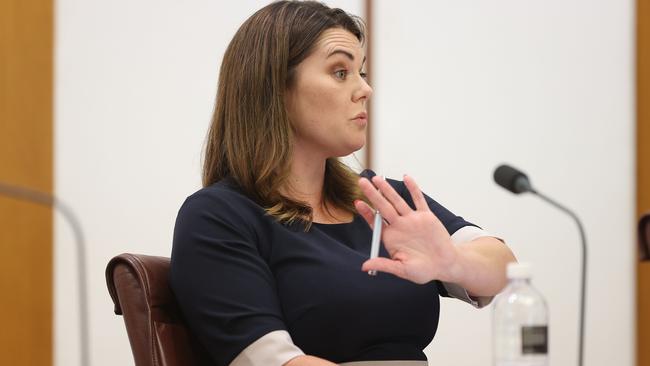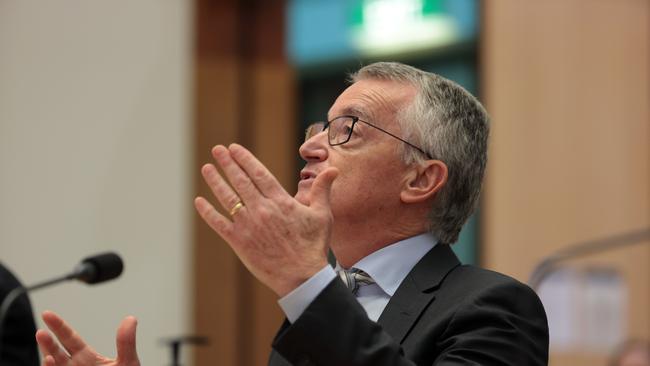Boston Consulting Group insists there was no Australia Post privatisation plan
Consultants say another review – on top of an existing $1.38m report – is needed to identify saleable Australia Post assets, but deny it’s a Clayton’s privatisation.

Boston Consulting Group says another review – on top of its $1.38m report into Australia Post – is needed to determine which areas of the postal service are ripe for selling off.
But Australia Post director and former Liberal state and federal director, Tony Nutt, said such a move would be “bad public policy” and “bad politics” which would land the government who presided over it in “deep doo doo”.
The government paid BCG $1.38m to complete a report to help shore up the future of the postal service. The report, delivered in February 2020, carried a recommendation to review “sub-businesses” of Australia Post – including StarTrack Road Express. That sparked a debate about whether that meant selling bits of the postal service, particularly its lucrative parcels division.
Despite the BCG report saying ”there appears to be merit in further exploring a partial divestiture” of the parcels business to “release cash and avoid significant capital investment over time”, BCG partners on Monday walked away any suggestions of partial privatisation.
The comments were made at the third hearing into a Senate inquiry into the ousting of former Australia Post chief executive Christine Holgate. The inquiry’s chair, Senator Sarah Hanson-Young, was not impressed with BCG’s responses.

“Hard to know what $1.38m delivered actually,” she said of the original report.
BCG managing director and partner Miguel Carrasco said any potential sale of Australia Post’s assets would require another review on top of BCG’s “rigorous analysis” of Australia Post.
“It (the BCG report) does say potential divestitures. We were very clear that we didn’t do the work that would be required in order to make a decision about any of those,” Mr Carrasco said
“Scoping studies and detailed work would need to be undertaken to work out whether they are core or non-core, what the value of those assets might be, etc.”
The BCG report, commissioned in late 2019, has become one of the key areas of investigation of the Senate inquiry into Ms Holgate’s departure, given its commissioning sparked division between her and the federal government.
Ms Holgate said the BCG study contradicted her own review, completed in May 2018, which also recommended cutting some services, but included plans to grow the business – such as investing in cold chain distribution and becoming a bank. Ms Holgate said her plans had been dismissed as “too ambitious”.
Mr Carrasco’s fellow BCG partner Trish Clancy said their organisation had never recommended privatising all or part of Australia Post.
“We did suggest that it may be worth the government looking at some of the sub-businesses within Australia Post and doing a detailed study on whether they’re still relevant to core operations,” Ms Clancy said, highlighting StarTrack Road Express and SecurePay.
Senator Hanson-Young replied: “Sounds like selling part of Australia Post to anyone listening.”

While BCG accepted and invitation to attend the senate inquiry, it’s understood McKinsey, which has also reviewed Australia Post’s operations, declined.
No privatisation agenda
Both the federal government and Australia Post’s board has rejected suggestions of privatising all or part of Australia Post.
Unlike the wave of privations of government-owned businesses in the 1980s and 1990s, including Qantas, Commonwealth Bank, CSL and Telstra, Australia Post director Tony Nutt said selling of bits of the postal service was “bad public policy”.
“I’m with (former prime minister) Bob Menzies. Bob Menzies said a person doesn’t have to be a socialist to think the government should own the post office, so I 100 per cent support public ownership,” former John Howard adviser Mr Nutt told the inquiry.
“I don’t support breaking off something very important like the parcels business. It’s bad public policy because, if for instance you divested parcels, you would put an enormous financial hole in the finances of Australia Post.
“It would affect LPOs (licensed post offices), it would affect jobs, it would affect the viability of Australia Post’s capacity to do everything that its expected to do in terms of its community service obligations.”
Mr Nutt also said selling all or part of Australia Post was also bad politics.
“My attitude is that it’s the perfect example where good public policy and good politics are precisely the same. If you try and privatise Australia Post, you’ll be in deep doo doo.”
Many reviews
Ms Holgate’s earlier submission to inquiry took aim at the number of reviews the government has commissioned into Australia Post.
“During my three years at Australia Post, I went through four reviews with external companies, the first initiated by myself the following three by the government,” Ms Holgate said.
“The three government reviews all suggested our plans were too ambitious and that there should be more focus on cutting costs.
“Each year we overachieved our targets, avoided losses, secured our jobs and protected our Community Post Offices, whilst still remaining viable, delivering modest dividends and covering a cost of approximately $400m to meet our community service obligations.”




To join the conversation, please log in. Don't have an account? Register
Join the conversation, you are commenting as Logout